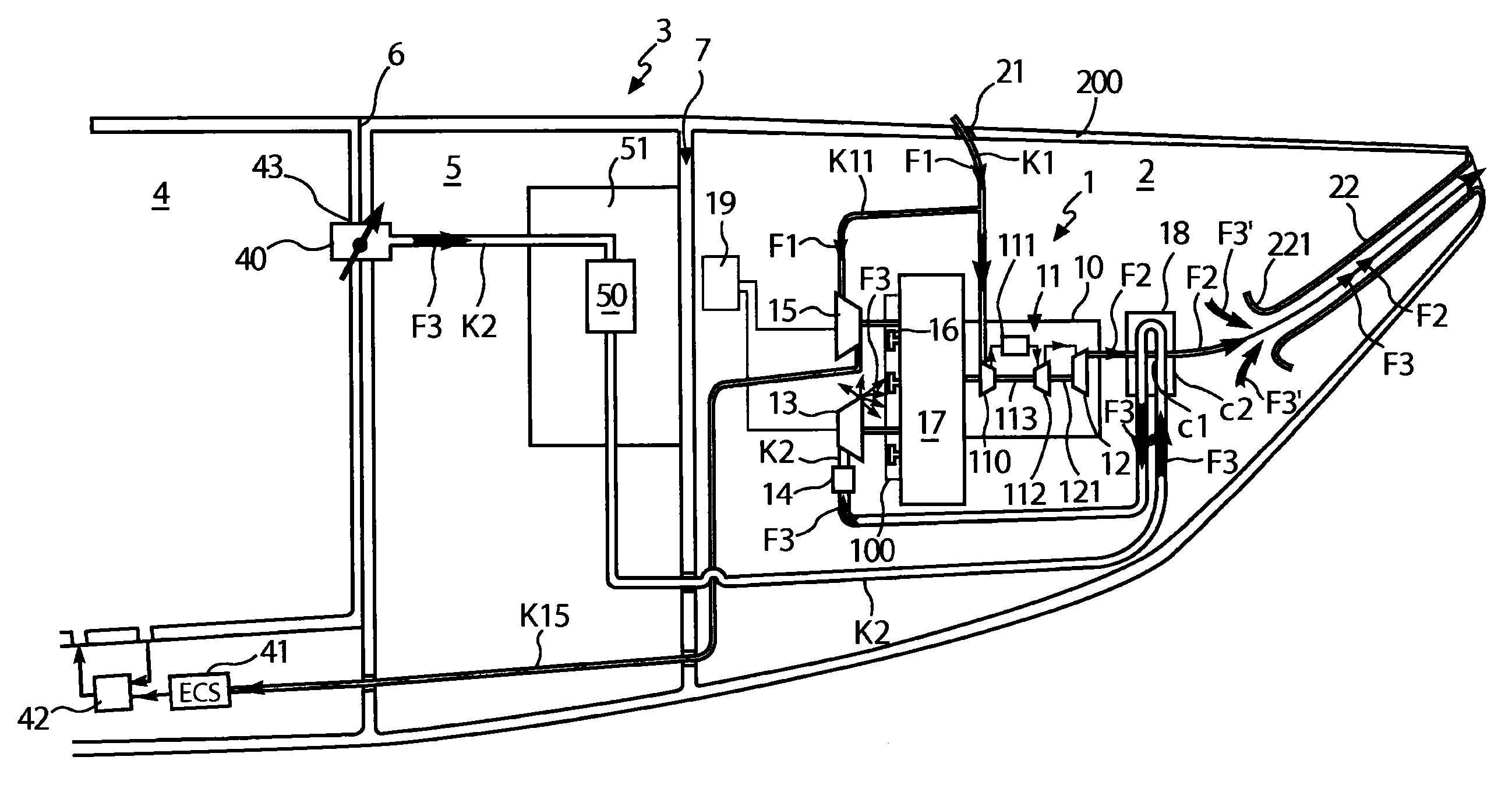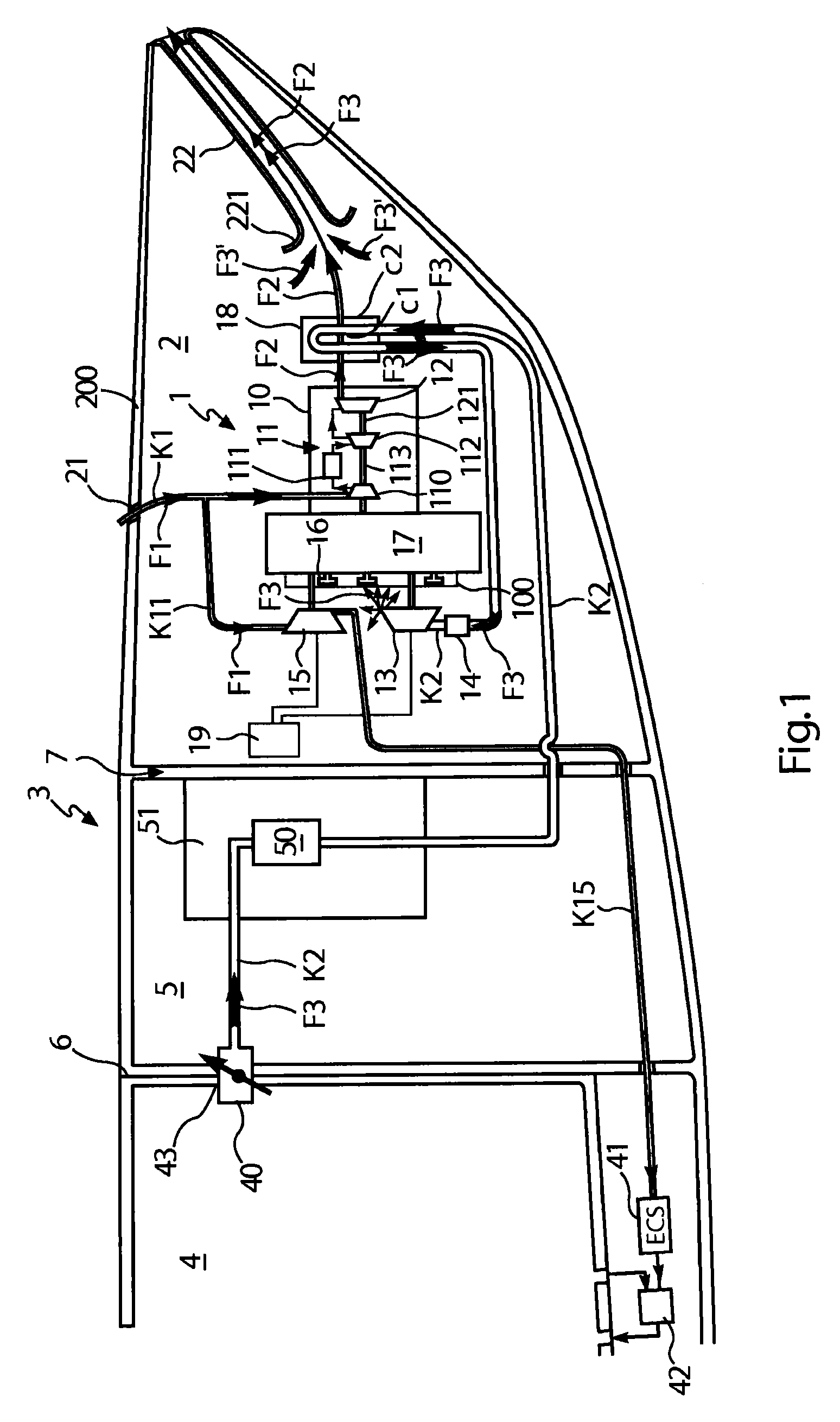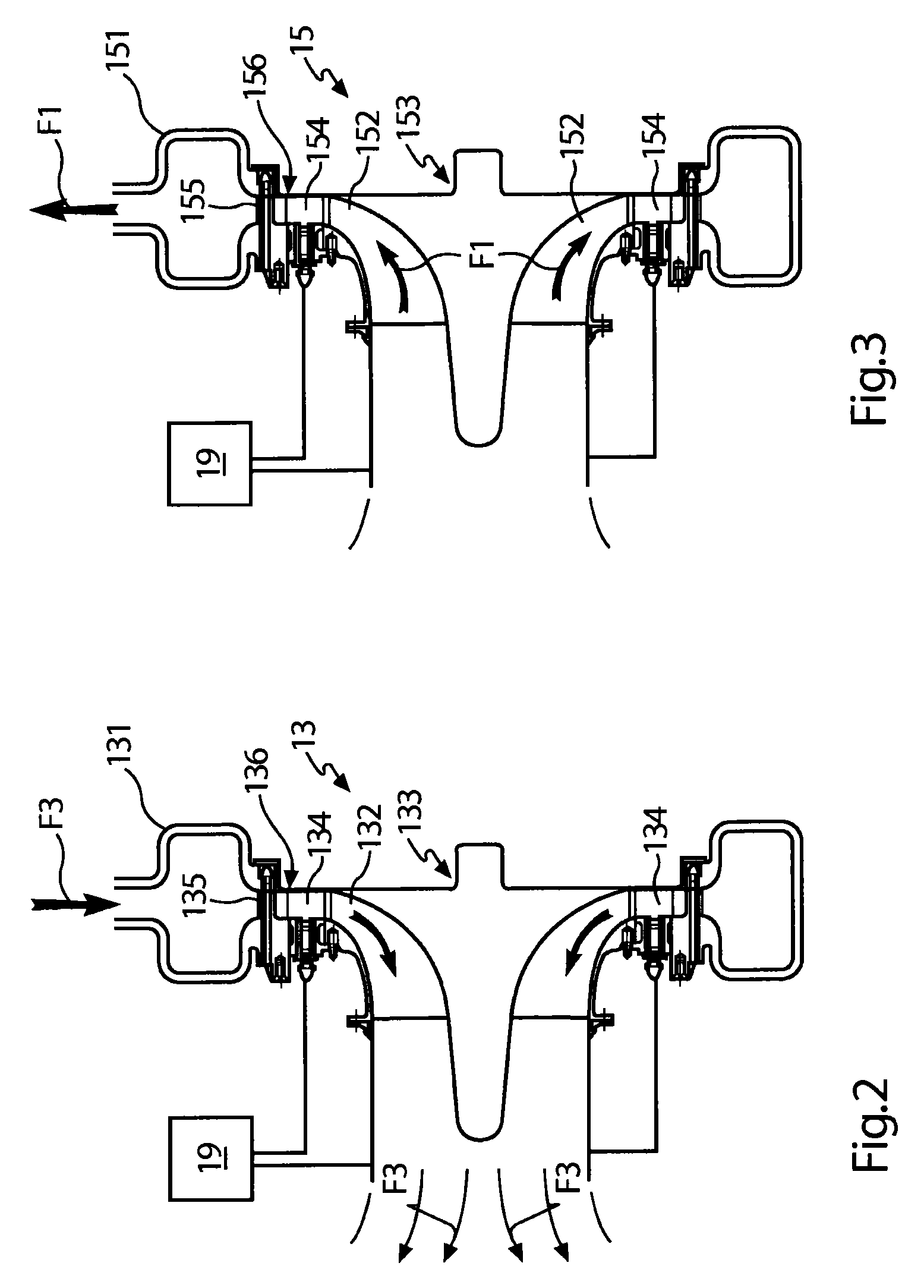Method for optimizing the overall energy efficiency of an aircraft, and main power package for implementing same
a technology for aircraft and power supplies, applied in the direction of energy-efficient board measures, navigation instruments, instruments, etc., can solve the problems of not being able to make regulation no more correctly, pressure drops and intrusive phenomena, and not being able to use the exhaust air from the cabin in a reliable way, so as to reduce specific consumption and remove useless power supplies
- Summary
- Abstract
- Description
- Claims
- Application Information
AI Technical Summary
Benefits of technology
Problems solved by technology
Method used
Image
Examples
Embodiment Construction
[0048]In all the Figs., identical or similar elements having the same function are identified with identical or related reference marks.
[0049]In reference to FIG. 1 showing a schematic diagram, a main power unit 1 is arranged in an aft compartment 2 situated in the downstream part of the aircraft 3. The passenger cabin 4 is situated upstream and coupled with the aft compartment 2 via an intermediate compartment 5. A pressure bulkhead 6 separates the cabin 4 from the intermediate compartment and a fireproof bulkhead 7 insulates the intermediate compartment 5 from the aft compartment 2, which is fitted with an outside-air intake 21 and an exhaust nozzle 22.
[0050]The main power unit 1 includes an engine 10, of the APU type but of the engine category, combined with an energy-recovery structure. The auxiliary engine consists of: a gas generator or HP body 11, including an intake compressor 110 for an air flow F1 coming from the air intake 21; a combustion chamber 111; and a turbine 112 f...
PUM
 Login to View More
Login to View More Abstract
Description
Claims
Application Information
 Login to View More
Login to View More - R&D
- Intellectual Property
- Life Sciences
- Materials
- Tech Scout
- Unparalleled Data Quality
- Higher Quality Content
- 60% Fewer Hallucinations
Browse by: Latest US Patents, China's latest patents, Technical Efficacy Thesaurus, Application Domain, Technology Topic, Popular Technical Reports.
© 2025 PatSnap. All rights reserved.Legal|Privacy policy|Modern Slavery Act Transparency Statement|Sitemap|About US| Contact US: help@patsnap.com



